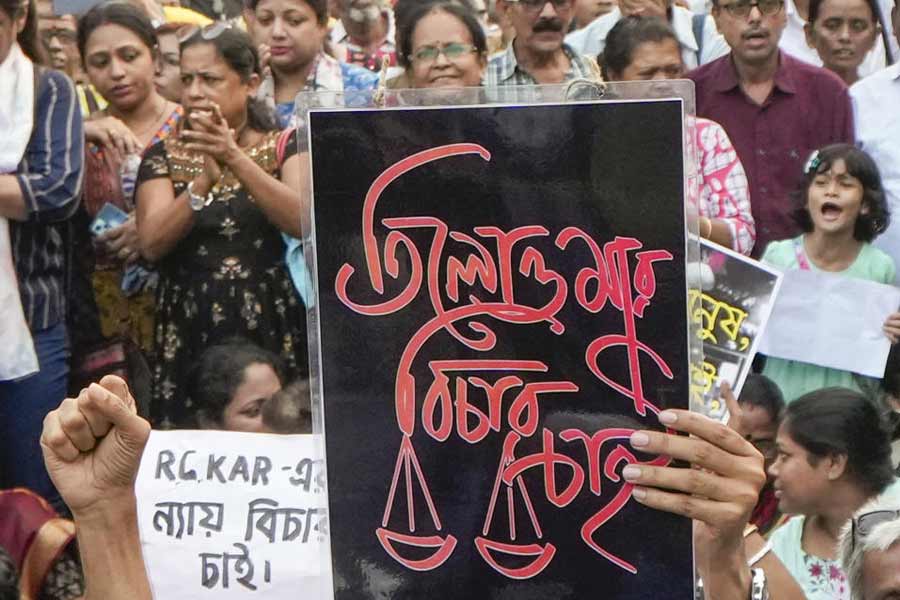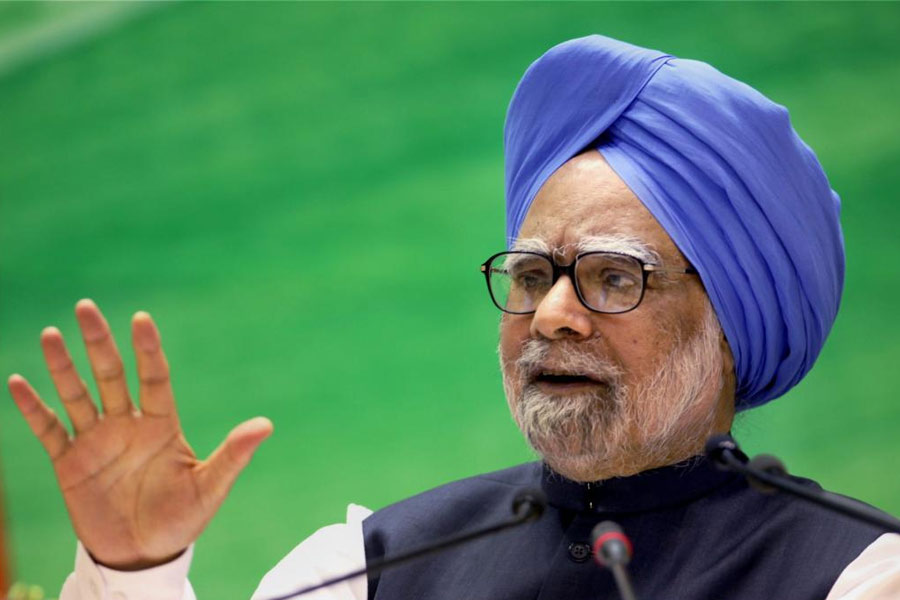The rape and murder of the trainee doctor at her workplace triggered an unprecedented larger movement for gender equity.
Down the line, that cry for equity is getting drowned by the high-decibel protests and politics around the RG Kar case, said many on Saturday.
A 26-year-old woman on the southern fringes of Calcutta gives private tuition to secondary students. She stopped going to one home recently. “Whenever the mother would not be home, the father would roam in front of me wearing a towel. He would check me out,” said the woman.
A 40-year-old woman working with a private bank is fed up with the “divorcee” tag at her workplace. “All my professional achievements mean nothing. I am defined by that one label,” said the woman.
Both women were part of the spontaneous “reclaim the night” marches on August 14-15.
“I had joined the march because I had not seen anything like it before. But with all that is happening now, I think the real issue is getting sidelined. It has become more of a political slugfest,” said the bank officer.
Many women, trans and queer persons who face discrimination and harassment at the workplace on a regular basis assembled at the Academy of Fine Arts on Saturday for a protest meeting titled the “Roar of Audacity (Spordhar Chitkar)”. Saturday marks four months of the “reclaim the night” movement.
An accredited social health activist (ASHA) worker from Howrah said she was objectified on a regular basis, sometimes by government representatives.
“Asha workers like us are often sexually harassed by our male superiors who think that they can get away with it as we operate mostly in rural areas. If we protest, we get threats of not getting our wages,” said the worker.
A 52-year-old domestic worker who hails from Patharpratima in the Sunderbans said domestic helps are the most vulnerable to sexual harassment. “One of my employers would touch me inappropriately. He was a lawyer himself and had a lot of clout. I could do the only thing in my hands — leave the job,” she said.
“Many continue to work despite being harassed because they cannot risk taking the financial hit,” she said.
A make-up artist said that many would cancel the job contract after learning that she was transgender. On several occasions, she said she had been molested.
“I have seen that many have this mindset that queer and transgender people are easy targets,” said the make-up artist.
A woman who delivers food for an app-based aggregator recalled how during a late-night delivery a man had tried to drag her inside a flat alleging a delay in delivery.
“I told him that he could lodge a complaint. Instead, he tried to drag me inside. I ran for my life,” said the woman in her 30s.
Satabdi Das, author and gender activist who was one of the organisers of Saturday’s meet, said they wanted to send a message to the authorities that the “RG Kar incident has not been forgotten and the fight for gender equity will not be suppressed”.
Some of the demands of the protesters, apart from speedy justice in the RG Kar case, are round-the-clock public toilets for girls and gender-neutral public toilets for trans people; safe restrooms in every workplace and internal Complaints Committee (ICC) in every organised workplace.











